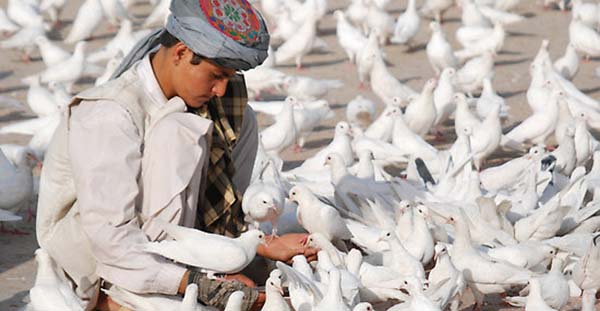As the 2014 approaches, Afghans are perplexed and worried about the future. People are worried what will happen to achievements and successes of Afghan government with the support of billions of dollars of international community and the blood of their soldier. The situation appears much worrisome when some Afghan officials issue statements against the very countries by whose support they become able to run the government.
On March 10, when President Karzai said that militants were helping foreign countries to stay longer, it was widely interpreted as a kind of collusion between foreign allies and militants and sparked huge criticisms. Top NATO and US officials branded the statement as baseless. The remarks, in fact, offended our allies but the situation was normalized as President Karzai afterwards mentioned that his ideas were misinterpreted.
Anyhow, one of the key factors that plays critical role in crisis management in the future is peace process. As it is clear, Kabul pays high importance to talks with militants as foreign security forces are
about to withdraw by the fall of 2014. While on the other hand, militants continue resisting on their inflexible policy—no talks with the government which Taliban call as ‘Puppet of the United States’. No doubt, the possible peace talks still face numerous hurdles before they begin, including confusion over who would represent the Taliban and Karzai's insistence that his appointees are at the center of negotiations. Clearly, during past years Taliban had never had serious talks with Afghan government or perhaps the United States.
Last year Taliban announced that it called off talks with the United States over what they called to be ‘doubtful policies of the United States’. While some news agencies, quoting high profile officials, put the reasons of halt in talks in the failure of talks on transfer of Taliban prisoners from Guantanamo prison as part of initial condition for serious peace talks.
The moves of Kabul doomed similar condition. The High Peace Council tried its best to open a single door of negotiation with
representatives of Taliban, but finally ended up with suicide bombers. The most obvious example is with assassination of former President, Prof. Rabbani, who was killed by a suicide bomber who claimed to be the representative of Taliban.
Meanwhile, Kabul has never become disappointed. President Karzai has left no stone unturned. Taliban defectors were strongly welcomed by him and now hold important position within the current political establishment. No one can dare to open mouth in opposition and ask former Taliban high ranking officials about tens of thousands of people killed during the regime.
After the very collapse of the Taliban regime in 2001, through foreign military support, Kabul officials clearly explained for all militants that they could join government without fear of persecution and, more importantly, they would be appointed in key administrative posts.
There are a lot of examples about Taliban defectors who are still suspicious of maintaining linkage with former colleagues, but work in quite seductive positions. They are holding mouthwatering posts and no institutions dares to question their dark profile.
Let’s put it this way. Taliban militants have had no problem in joining the democratic process. Elements showed interest have been highly welcomed. But one striking turn occurred in late 2009, and that
was disappointment of foreign allies for success of military strategies.
Indeed, years of engagement without clear prospective about victory made many foreign allies to reassess their military strategies and search for alternatives. One of those alternatives was of course the
so-called Afghanization of the mission, which was generally interpreted as transferring responsibilities to Afghan people and giving them authority to take their destiny in their own hands. This process provided
President Karzai to stamp on a policy which he maintained and pushed for, perhaps, from the very start of anti-insurgency struggle in 2001.
Thereafter, he has held bold steps to make deal with Taliban militants. He publicly calls them as ‘angry brothers’ and even circles around him philosophize that Taliban have changed dramatically from what they used to be. It is not a very unfamiliar statement in domestic press that if Taliban recaptures power and end current ruling establishment, they would not rule the country as they did.
Probably, they would allow girls to go to school and observe human rights, specifically, women rights to some extent. These claims are made with such certainty that leads to false assumption among common civilians.
I do not know why such bogus claims are made. Is it due to efforts made by circles within and out of the government in order to draw a more acceptable picture of Taliban militants and the regime they would
establish? And I leave the answer for you, but there is one thing that I can assure you about and that is “Talibanism and Human Rights” are contradictory that wouldn’t approach each other at all.
Definitely, officials and civilians alike prefer political settlement. And it is also definite that till Taliban leaders do not reach to calculation that they only waste their strength, fighting Kabul without any hope for its collapse, they would not stretch hand for peace. The only thing President Karzai should notice that is only possible through close cooperation with foreign allies and empowerment of his government, particularly security forces. Thus, a better management of peace process can end to positive results, but if it is continued on the basis of present plea and request, the result would not be in the general interest of Afghan people.

